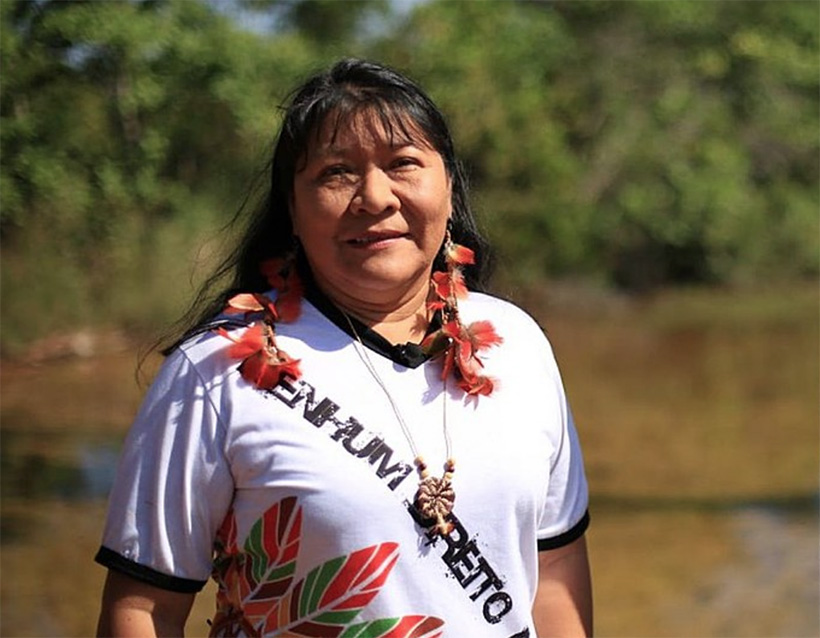Joênia was the first indigenous woman in Brazil to practice law, and also the country’s first indigenous federal deputy. (Image by Agência Brasil)
The National Foundation of Indigenous Peoples (FUNAI) will be chaired by an indigenous person for the first time since its creation 55 years ago. Joenia Wapichana (Rede), a lawyer and former federal deputy for Roraima, takes office on Friday 3.
Lawyer for Roraima, Joenia will have the challenge of resolving the lawsuits accumulated by the Funai dismantled by Bolsonaro
By Murilo Pajolla
The historic ceremony will take place at the Indigenous Peoples Memorial, in Brasília (DF), starting at 4pm (Brasília time). The event will be attended by indigenous leaders from all over the country, as well as authorities and indigenists.
Joenia has a law degree from the Federal University of Roraima (UFRR) and a master’s degree in international law from the University of Arizona. Born in Boa Vista, (RR), she was the first indigenous woman in Brazil to practice law and also the first indigenous federal deputy in Brazil.
Commenting on the humanitarian crisis in Yanomami Indigenous Land in an exclusive interview with Brasil de Fato, Joenia said that Funai plans to participate in operations to expel illegal miners from indigenous lands, but stressed that it first needs to “rebuild” the indigenous body, razed to the ground during Bolsonaro’s government.
“As soon as I take over the presidency of Funai, I know it will be a very big challenge and that resources are insufficient. We will have to be quite innovative and creative and seek support from other ministries,” she said in Roraima.
New developments in indigenism
This is not the only unprecedented development that marks Brazilian politics in 2023. Brazil now has a Ministry of Indigenous Peoples (MPI), headed by a world-renowned indigenous leader, Sônia Guajajara (PSOL-SP). The new portfolio will house the Funai, which was previously subordinated to the Ministry of Justice.
Another new development is the change of name of Funai, the official indigenous body of the Brazilian state. As of this year, the name changed from “National Indian Foundation” to “National Foundation of Indigenous Peoples”, as a way of valuing the diversity of Brazil’s native peoples.
The change was a demand of the national indigenous movement and was even approved in 2022 through a Bill (PL) proposed by Joenia Wapichana, the only indigenous parliamentarian in Congress in the last Legislature.
President Bolsonaro, however, vetoed the text on the grounds that it was not in the “public interest”.






